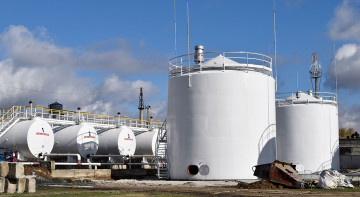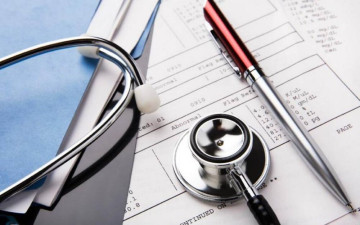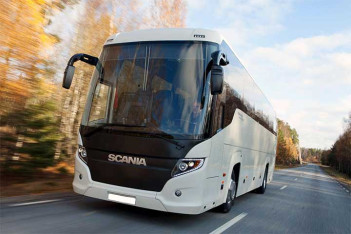License for scrap metal ferrous and non-ferrous metals
In the conditions of the modern economy, the procurement, processing and sale of scrap metal is one of the strategic directions for the development of industry and infrastructure of Ukraine. But at the same time, the sphere of circulation of scrap metal of ferrous and non-ferrous metals is under strict state control. This is justified by the fact that it often becomes the object of abuse, shadow schemes and damage to the environment.
In order for an enterprise to have the right to legally conduct activities related to the acceptance, procurement, storage or sale of scrap metal, it is necessary to obtain a license for scrap metal of ferrous and non-ferrous metals. This permit is a guarantee that the activity complies with current legislative norms and you can freely cooperate with partners and government agencies.
Legal stages of obtaining a license for scrap metal ferrous and non-ferrous metals
This process consists of a number of sequential actions, each of which has its own specifics:
- Primary legal assessment of the enterprise and analysis of documents. At the initial stage, the lawyer carefully examines the constituent documents, checks the types of activities in the extract from the Unified State Register, the presence of the necessary KVEDs, as well as documents for real estate or sites where work with scrap metal is planned.
- Collection and preparation of a package of documents. To obtain a license, a large list of documents should be formed: regulations on scrap metal activities, internal instructions, territory organization schemes, equipment acceptance and transfer acts, certificates of weighing facilities, agreements with laboratories for environmental control, without which it is impossible to issue a license for scrap metal ferrous and non-ferrous metals. The lawyer is responsible for the correct preparation of all documents.
- Organization of training and staff training. The legislation requires that employees working with scrap metal be properly instructed. For this purpose, special training programs are prepared, briefings are conducted, registration logs are kept, and schedules for technical inspections of equipment are drawn up.
- Submission of documents and support of inspections. When all the papers are ready, the specialist prepares and submits an application to the relevant authority. Then he responds to possible requests, accompanies during inspections and monitors the elimination of remarks, if any.
- Obtaining a license and further legal support. After the decision to issue a license is made, the company officially receives the right to operate in the scrap metal market. But the specialist continues to support the business - takes on reporting issues, prepares for inspections and helps in resolving disputes with regulatory authorities.
Comprehensive completion of all these steps under the supervision of a lawyer guarantees that the license will be obtained in the shortest possible time and without the risk of repeated submissions or fines.
Conditions for providing services for obtaining a license for scrap metal ferrous and non-ferrous metals
In order for a lawyer to successfully organize and conduct the procedure for obtaining a license, it is important that the company ensures a number of organizational and legal conditions:
- Full openness and willingness to provide the necessary documentation. The specialist will need constituent documents, information on the authorized capital, lease or ownership agreements for land plots and premises, data on existing equipment, weighing equipment and transport. Each hidden detail increases the risk of problems with licensing.
- Willingness to implement the necessary changes to legislative standards. This applies to the introduction of internal instructions, the creation of scrap metal transaction logs, the development of accident prevention plans. It is also important to have resources for briefings and training personnel.
- Appointment of a responsible person who will interact with the lawyer. Having a contact person who will coordinate the process, respond quickly to requests, and provide access to facilities or documents significantly reduces the time required to obtain a permit.
- Formalizing cooperation with a contract. This guarantees a clear understanding of the terms of cooperation, terms, and cost, protects both parties, and forms a legal basis for high-quality work.
By ensuring these conditions, you will receive not just a license, but an established legal process that will further protect your business from inspections and sanctions.
Advantages of contacting a lawyer when applying for a license for scrap ferrous and non-ferrous metals

Proper documentation: The specialist will prepare the papers so that they meet all the requirements of the licensing authorities and do not raise additional questions and suspicions.

Saving time and avoiding risks: Thanks to the specialist's experience, the procedure will take much less time, and the risk of refusal will be minimal.

Legal support even after obtaining a license: A professional will help you keep records, prepare reports, and successfully pass all scheduled and unscheduled inspections.
Frequently asked questions about obtaining a license for scrap metal of ferrous and non-ferrous metals
Question
Is a separate license required for each settlement where a reception point is planned to be opened?
Answer
No, a separate license is not required for each settlement, one is enough, which will indicate all the addresses of the reception points. The main thing is that the necessary documents are prepared for each facility and the requirements of the law are met.
Question
Is it possible to start preparatory work and an advertising campaign before obtaining a license?
Answer
Yes, you can carry out preparatory work and launch advertising, but actually accepting scrap and carrying out operations with it is allowed only after obtaining a license. This will help avoid fines and claims from regulatory authorities.
Question
Is it necessary to equip special sites for separate storage of ferrous and non-ferrous scrap?
Answer
Yes, ferrous and non-ferrous scrap must be stored separately in specially equipped sites in order to comply with accounting requirements and prevent mixing. This is one of the key conditions for obtaining a license.
What does the cost of obtaining a license for scrap metal ferrous and non-ferrous metals depend on?
The price of a lawyer's service is determined by several factors: the size of the enterprise, the number of sites and warehouses for storing scrap metal, the presence or absence of the necessary documentation, the technical condition of the objects and the urgency of registration. After a preliminary analysis of the business, the specialist draws up an individual estimate, which is fixed in the contract, which guarantees transparency of costs and the absence of hidden payments.
ConclusionHaving a license for scrap metal ferrous and non-ferrous metals is an opportunity to work calmly, develop partnerships, participate in government procurement and avoid penalties. Legal support allows you to make this process understandable, predictable and as safe as possible for the company. Do not postpone an important decision - protect your business today.








































